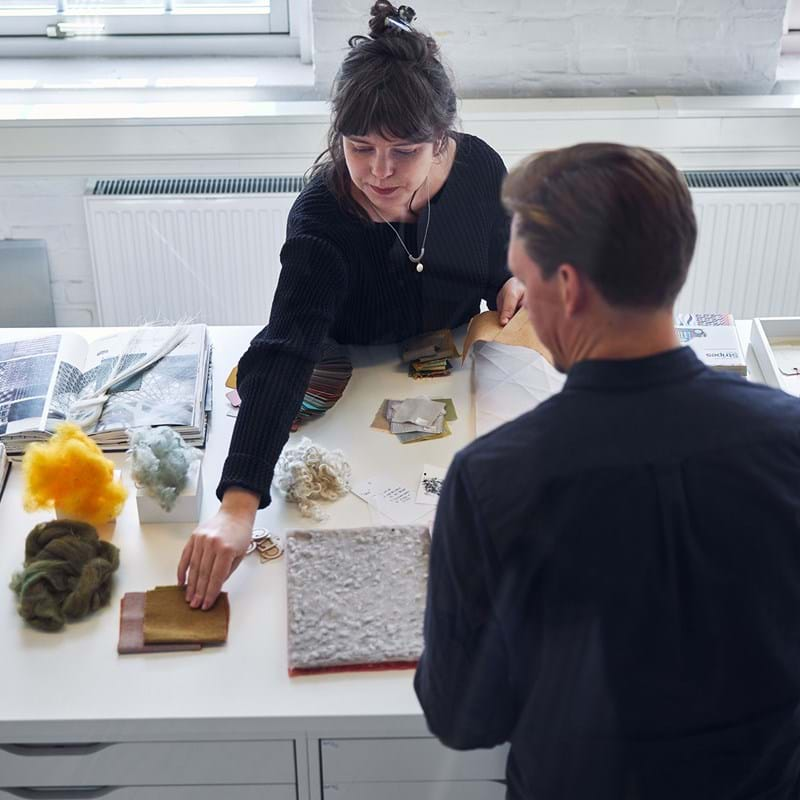At Svensson, we develop textile solutions that create environments where people thrive and feel good. An important factor for well-being is pleasant acoustics.
Here we share our combined knowledge and experience together with experts from different industries and areas.

What the pandemic taught us about sound and working environment
As we returned to the office after two years of remote work during the pandemic, we could begin comparing working environments in a way that many had not done before. Alongside the latest research, this has led to some interesting insights shared by Svensson here.

Understanding the impact of sound environment on our experience
How we perceive a sound environment is strongly linked to our well-being. However, since the experience itself is individual, it's important to understand the factors that can influence different people's impressions of the whole.

More Than Just Silence
As the world evolves, new demands are placed on how office environments are designed, especially concerning the acoustic environment. By combining acoustics with aesthetics and ergonomics, we can offer environments where employees not only avoid disturbances but also find inspiration and comfort. In this article, we grasp the challenges and opportunities of today's and tomorrow's acoustic environments in workplace design.

What research can teach us about the acoustic environment
A good acoustic environment that interacts with the visual design and provides a meaningful overall experience is important for our health and well-being. But getting there is, to say the least, a balancing act, with both external and internal factors influencing us.

From a design perspective
What role do colour and shape play in the acoustic environment? In an interview, Svensson's Design team talks about their view of the space as a whole, and the work with soundproofing-classified textiles that should both absorb a certain decibel and at the same time fall and feel right.

How does sound move about a room?
In a room with a good acoustics, our brains don’t need to waste energy processing irritating sounds that have no informational value. This gives us a greater capacity for remembering, solving problems, and managing useful information. The knowledge of how sound moves about in a room is very important for us at Svensson where we produce noise-rated textiles. In this article, we teach you about the fundamentals of how noise is created and how it impacts us

Environments for wellbeing
“The most important factors of all for sound absorption are weave construction, thread and weight. But as a designer, I think it’s really important to remember aesthetics too,” says Pernilla McGillivray, textiles designer at Svensson, adding, “in fact, all the textiles in a room have an impact on the sound environment. With that in mind, it might be worth having an acoustic dress code.”
Textiles designer, Pernilla McGillivray, and informatics researcher, Martin Ljungdahl Eriksson, talk textiles and wellbeing.

The workplace of the future is social
The coronavirus pandemic has made it clear that for most office workers, working from home works just as well if not better than working at the office.
- When I look to the future, I see a change in the nature of offices, with them becoming more flexible, more social and divided into zones,” says industrial placement PhD candidate Martin Ljungdahl Eriksson.